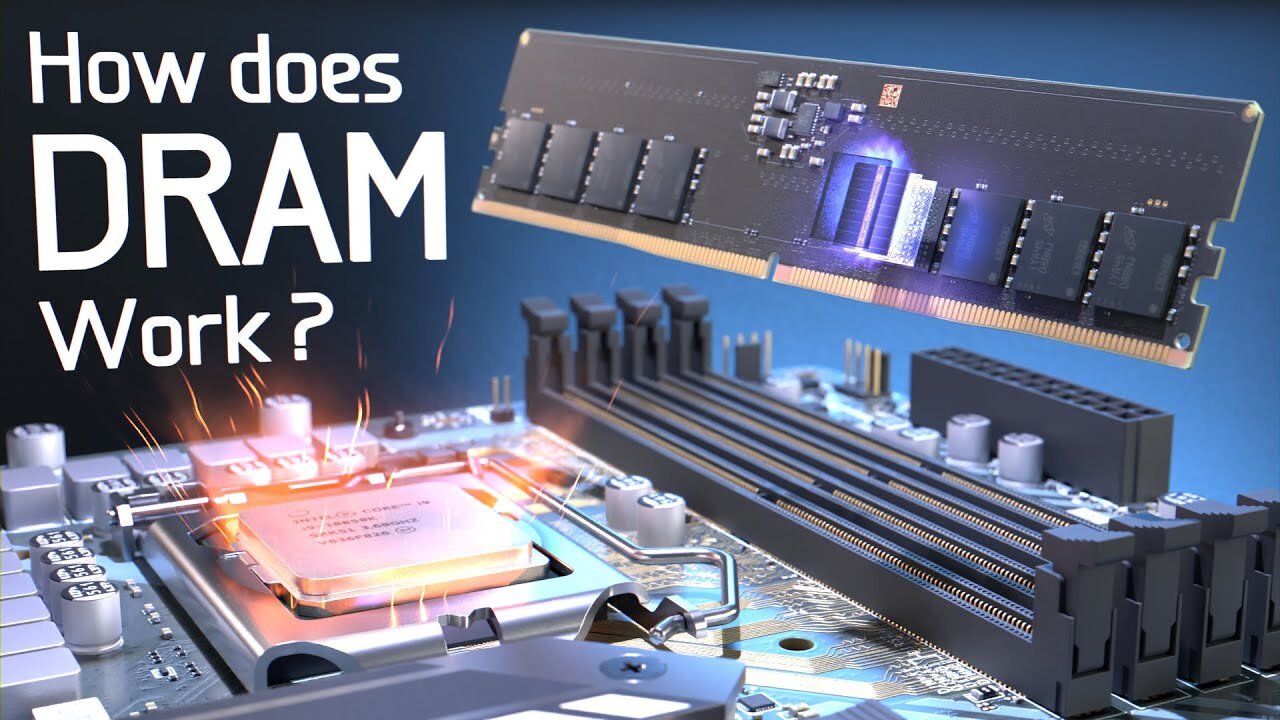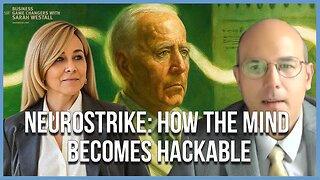Premium Only Content

How does Computer Memory Work?
Although memory is technically any form of electronic storage, it is used most often to identify fast, temporary forms of storage. If your computer's CPU had to constantly access the hard drive to retrieve every piece of data it needs, it would operate very slowly. When the information is kept in memory, the CPU can access it much more quickly. Most forms of memory are intended to store data temporarily.
The CPU accesses memory according to a distinct hierarchy. Whether it comes from permanent storage (the hard drive) or input (the keyboard), most data goes in random access memory (RAM) first. The CPU then stores pieces of data it will need to access, often in a cache, and maintains certain special instructions in the register. We'll talk about cache and registers later.
All of the components in your computer, such as the CPU, the hard drive and the operating system, work together as a team, and memory is one of the most essential parts of this team. From the moment you turn your computer on until the time you shut it down, your CPU is constantly using memory. Let's take a look at a typical scenario:
You turn the computer on.
The computer loads data from read-only memory (ROM) and performs a power-on self-test (POST) to make sure all the major components are functioning properly. As part of this test, the memory controller checks all of the memory addresses with a quick read/write operation to ensure that there are no errors in the memory chips. Read/write means that data is written to a bit and then read from that bit.
The computer loads the basic input/output system (BIOS) from ROM. The BIOS provides the most basic information about storage devices, boot sequence, security, Plug and Play (auto device recognition) capability and a few other items.
The computer loads the operating system (OS) from the hard drive into the system's RAM. Generally, the critical parts of the operating system are maintained in RAM as long as the computer is on. This allows the CPU to have immediate access to the operating system, which enhances the performance and functionality of the overall system.
When you open an application, it is loaded into RAM. To conserve RAM usage, many applications load only the essential parts of the program initially and then load other pieces as needed.
After an application is loaded, any files that are opened for use in that application are loaded into RAM.
When you save a file and close the application, the file is written to the specified storage device, and then it and the application are purged from RAM.
In the list above, every time something is loaded or opened, it is placed into RAM. This simply means that it has been put in the computer's temporary storage area so that the CPU can access that information more easily. The CPU requests the data it needs from RAM, processes it and writes new data back to RAM in a continuous cycle. In most computers, this shuffling of data between the CPU and RAM happens millions of times every second. When an application is closed, it and any accompanying files are usually purged (deleted) from RAM to make room for new data. If the changed files are not saved to a permanent storage device before being purged, they are lost.
One common question about desktop computers that comes up all the time is, "Why does a computer need so many memory systems?"
-
 LIVE
LIVE
SpartakusLIVE
3 hours agoTrios w/ The BOYS on WZ and then we're teaching Jean ARC RAIDERS
523 watching -
 LIVE
LIVE
SOLTEKGG
1 hour agoLIVE - NOT LOSING A MATCH - NEW PC - !pc
249 watching -
 LIVE
LIVE
ThatStarWarsGirl
1 hour agoTSWG LIVE: Stargate Is BACK! EFAPing Michael Shanks Interview with GUEST!!!
102 watching -
 LIVE
LIVE
MissesMaam
2 hours agoStardew Co-Op 💚✨
37 watching -
 1:32:46
1:32:46
Glenn Greenwald
4 hours agoHillary Blames TikTok for Anti-Israel Sentiment; MAGA Sycophants Gain Pentagon Press Access; Who Should Win Anti-Semite of the Year? See the Top 10 Finalists | SYSTEM UPDATE #552
85.9K66 -
 LIVE
LIVE
Flyover Conservatives
21 hours ago100% Chance the Grid Fails: Why No One Is Fixing It (and How Easy It Is) - Tommy Waller | FOC Show
315 watching -
 LIVE
LIVE
JDubGameN
2 hours agoStarlink Network Test Stream! | Road to 100 Followers
92 watching -
 2:17:31
2:17:31
The Daily Signal
5 hours ago $2.76 earned🚨BREAKING: Tennessee Congressional Election Results, Minneapolis Police to "Intervene" Against ICE,
7.02K6 -
 LIVE
LIVE
megimu32
1 hour agoON THE SUBJECT: Christmas Vacation Is UNTOUCHABLE!
136 watching -
 59:56
59:56
Sarah Westall
3 hours agoNeurostrike, Cognitive Targeting & the New Tech Arms Race w/ Professor Armin Krishnan
2.5K